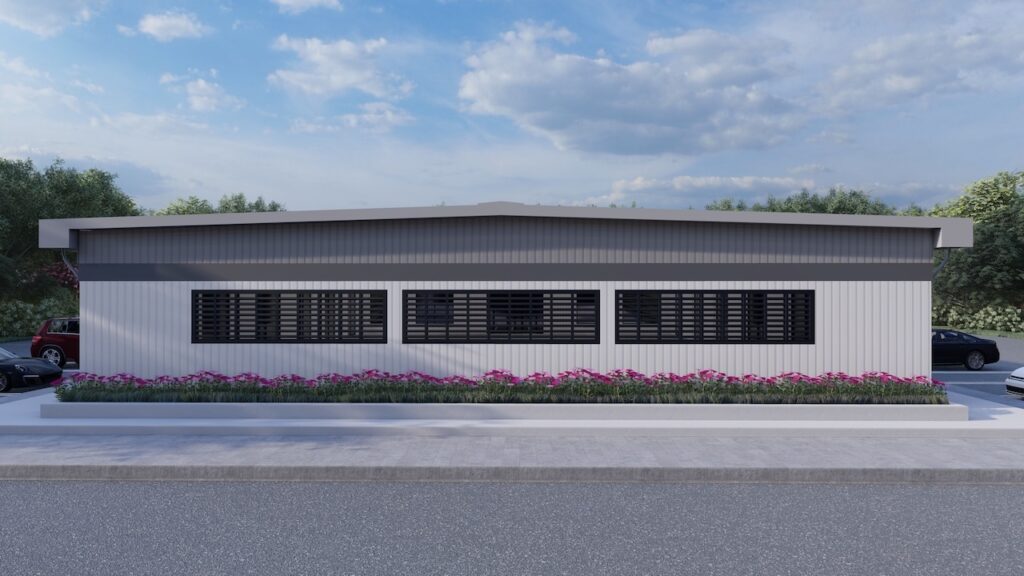
The world of retail is undergoing a transformative shift, and at the heart of this evolution lies modular retail building. Traditional brick-and-mortar stores are facing increasing challenges from e-commerce giants and changing consumer preferences. To adapt and thrive in this dynamic landscape, retailers are turning to innovative solutions, and modular retail buildings are emerging as the future of retail. In this comprehensive guide, we will explore the concept of modular retail buildings, delve into the benefits they offer, examine real-world examples, and discuss their potential impact on the retail industry.
Understanding Modular Retail Building
Before we delve into the reasons why modular retail building is the future, let’s begin by understanding what modular retail building entails.
What is Modular Retail Building? – Modular retail building involves constructing retail spaces using prefabricated modules or components. These modules are manufactured off-site in a controlled environment and then assembled on-site. This construction approach offers a more efficient, sustainable, and versatile alternative to traditional building methods.
The Evolution of Modular Construction – Modular construction has come a long way since its inception. Technological advancements have enabled the creation of highly customizable, aesthetically pleasing, and durable modular structures. Today’s modular buildings are virtually indistinguishable from their traditionally constructed counterparts.
The Benefits of Modular Retail Building
Now that we have a clear understanding of modular retail building, let’s explore the numerous advantages it offers to retailers and the broader industry.
Speed of Construction – One of the most significant benefits of modular retail building is its speed. Modules are manufactured concurrently with site preparation, drastically reducing construction timelines. This speed is crucial for retailers looking to enter new markets or adapt quickly to changing consumer demands.
Cost Efficiency – Modular construction is inherently cost-effective. With reduced labor costs, less material waste, and efficient manufacturing processes, retailers can achieve substantial cost savings compared to traditional construction methods.
Design Flexibility – Modular retail buildings are highly customizable, allowing retailers to design and adapt their spaces to fit their brand and product offerings. This flexibility ensures that the retail environment aligns perfectly with the brand’s image and customer experience.
Sustainability – Sustainability is a growing concern in the retail industry. Modular construction reduces waste, energy consumption, and environmental impact. Modular buildings can also incorporate eco-friendly materials and energy-efficient systems, making them a greener choice.
Scalability – Retailers can easily scale their operations up or down by adding or removing modules as needed. This scalability accommodates seasonal demands and future expansion plans without the need for extensive renovations.
Real-World Examples
To illustrate the practical applications and success stories of modular retail buildings, let’s explore some real-world examples.
Pop-Up Stores – Pop-up stores are a perfect fit for modular retail buildings. Retailers can quickly deploy these temporary stores in high-traffic locations to capitalize on trends, events, or seasons. Iconic brands like Nike and Adidas have successfully utilized pop-up stores built with modular construction techniques.
Drive-Through and Convenience Retail – The convenience retail sector has embraced modular construction for drive-through outlets. Modular drive-through coffee shops, fast-food restaurants, and convenience stores are becoming increasingly common due to their speed of construction and ease of operation.
Shopping Malls and Shopping Centers – Even large-scale shopping centers and malls are recognizing the benefits of modular construction. They can add new retail spaces, kiosks, or dining areas to their existing structures, enhancing the overall shopping experience.
The Impact on the Retail Industry
Now, let’s explore how modular retail buildings can potentially reshape the retail industry as a whole.
Adapting to Changing Consumer Behavior – Consumer behavior has evolved dramatically in recent years, with a growing preference for convenience and online shopping. Modular retail buildings enable retailers to quickly establish a physical presence in new markets, enhancing their ability to meet changing consumer demands.
Revitalizing Urban SpacesModular retail buildings can play a vital role in revitalizing urban areas. They allow for the efficient repurposing of underutilized spaces, contributing to the economic and social vibrancy of cities.
Reducing Retail FootprintsIn an era where minimizing carbon footprints is paramount, retailers can opt for smaller, energy-efficient modular retail spaces that reduce their environmental impact while still providing an exceptional shopping experience.
Challenges and Considerations
While modular retail buildings offer a plethora of benefits, it’s essential to acknowledge the challenges and considerations associated with this construction approach.
Permitting and RegulationsNavigating local building codes and regulations can be more complex with modular construction. Retailers must work closely with local authorities to ensure compliance.
Quality ControlMaintaining consistent quality across modular components is crucial. Retailers need to partner with reputable manufacturers and construction teams to ensure the final product meets their expectations.
Conclusion
In conclusion, modular retail building is undeniably the future of the retail industry. Its numerous advantages, from speed and cost efficiency to design flexibility and sustainability, make it an attractive option for retailers looking to thrive in a rapidly evolving market. Real-world examples demonstrate its practical applications, and its potential impact on the retail landscape is substantial.
As retailers continue to adapt to changing consumer behavior and environmental concerns, modular retail buildings provide a sustainable and versatile solution. While challenges exist, the benefits far outweigh them, and with careful planning and execution, modular construction can unlock new opportunities for growth and innovation in the world of retail.
The retail industry is evolving, and those who embrace modular retail building are poised to lead the way into a more dynamic, efficient, and sustainable future. It’s time for retailers to recognize the potential of modular construction and leverage it to their advantage in this ever-changing landscape.